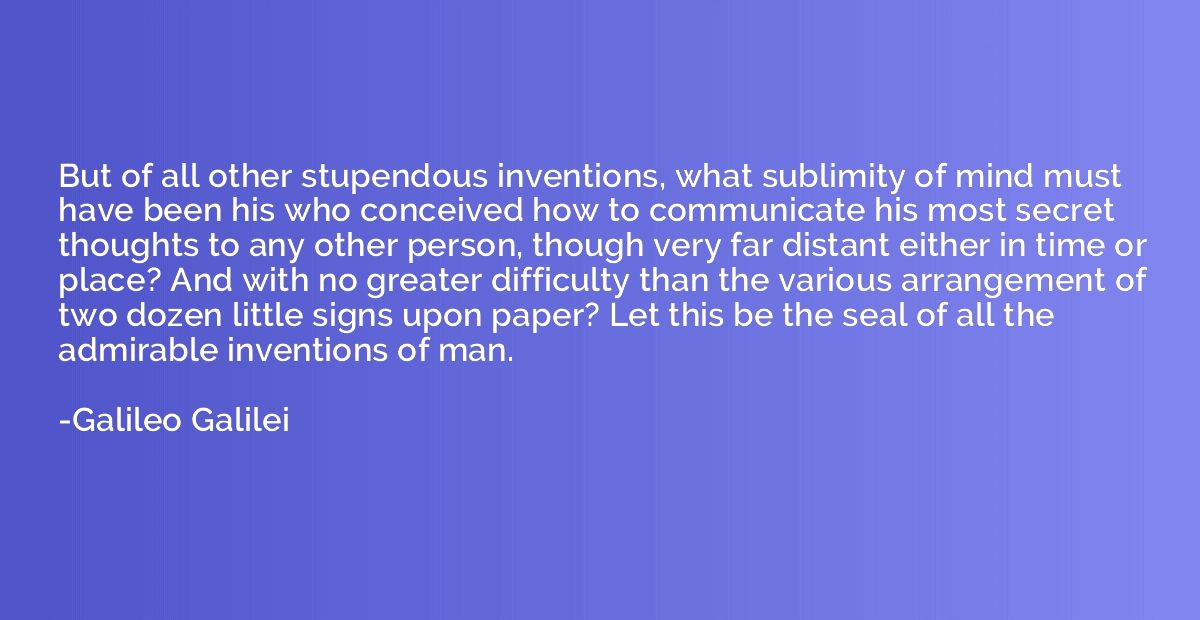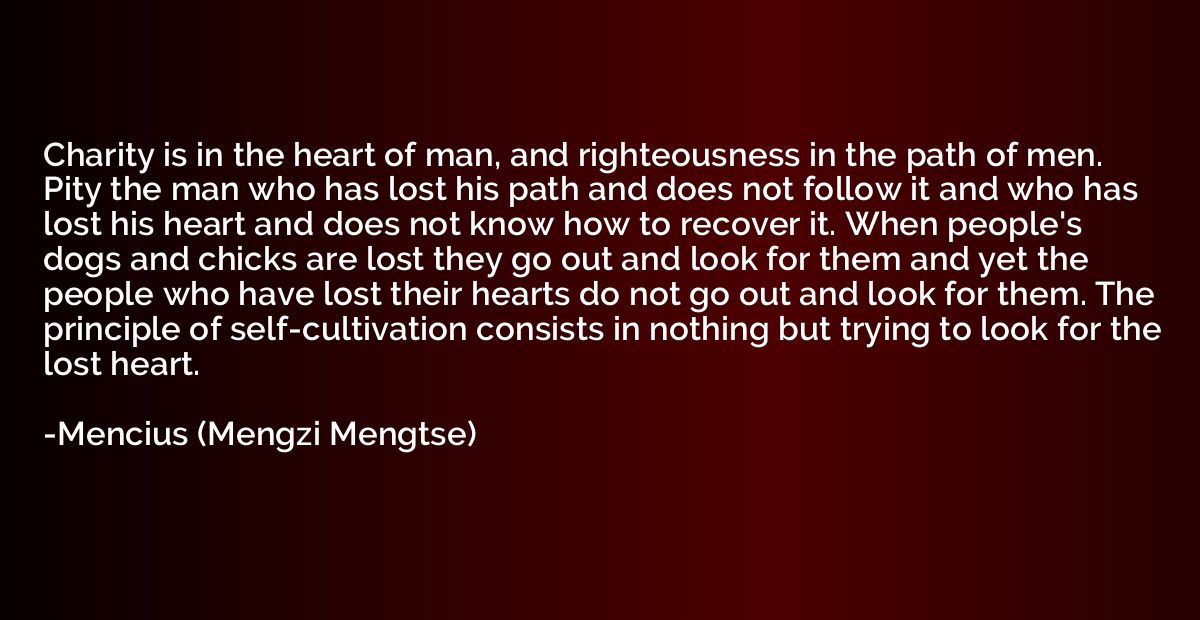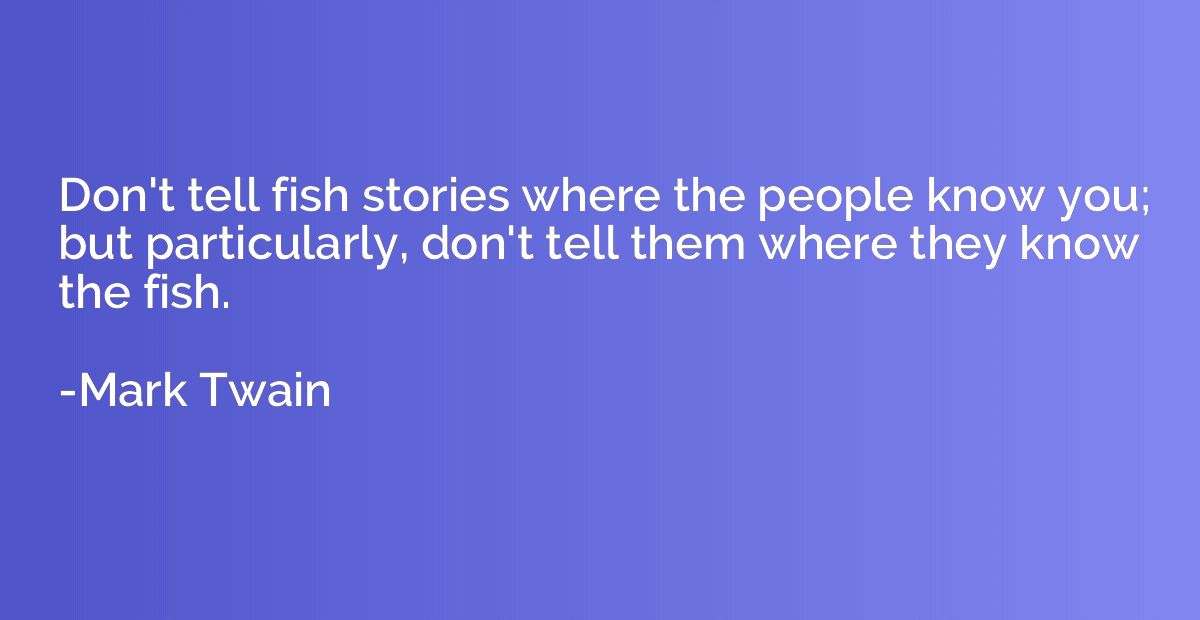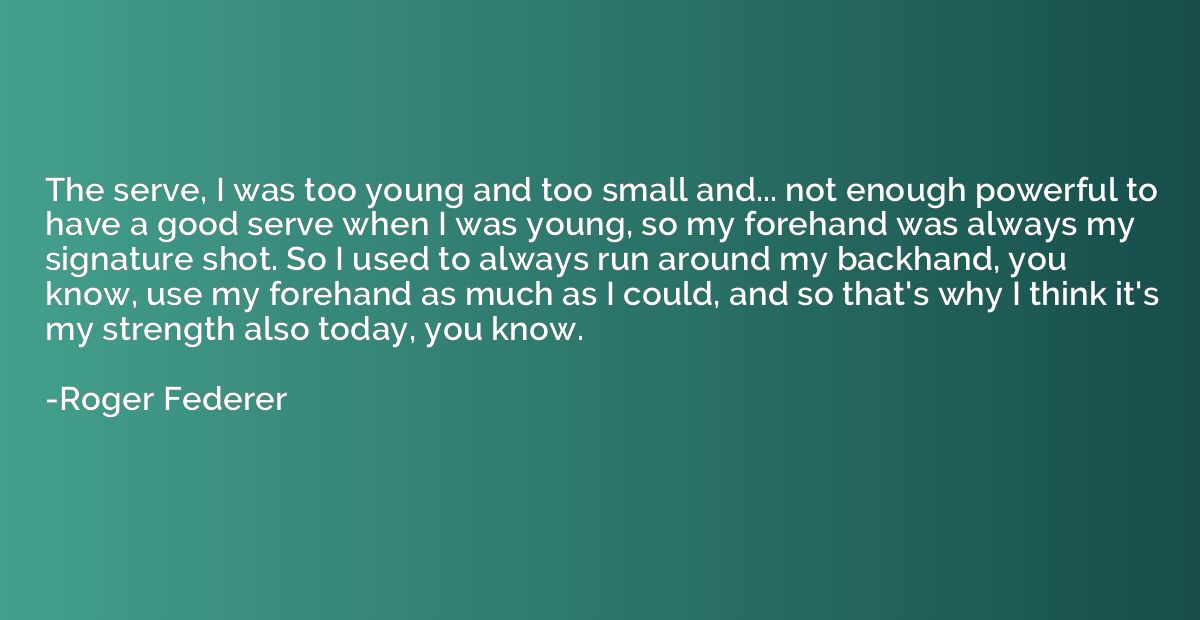Quote by Galileo Galilei
But of all other stupendous inventions, what sublimity of mind must have been his who conceived how to communicate his most secret thoughts to any other person, though very far distant either in time or place? And with no greater difficulty than the various arrangement of two dozen little signs upon paper? Let this be the seal of all the admirable inventions of man.

Summary
This quote highlights the astounding nature of human invention by praising the concept of written communication. It marvels at the idea that someone could convey their innermost thoughts and ideas to others, regardless of the vast separation in time and space. The emphasis lies in the simplicity and effectiveness of using just a handful of symbols and paper to achieve this feat. The quote suggests that this ability to communicate in writing is a testament to the ingenuity and brilliance of mankind's inventions.














